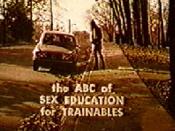Since the 1960s, sex education in North American schools has been surrounded by controversy. Sex education evolved from brief units about anatomy to a preoccupation with the prevention of unwanted pregnancy and sexually transmitted diseases (STDs). By the 1990s, sex education occurred within comprehensive interventions that presented it as but one means of promoting holistic health. A critical review searching for a sex-positive perspective reveals that sex education has a history of focusing on the dangers of sexuality almost to the complete exclusion of its joys. Furthermore, women have been presented as sexual objects lacking subjective desire. This paper concludes with recommendations for sex-positive sex education development.
AbstractPrior to the 1960s, sexuality education in North American schools supported traditional Victorian and Christian morals. Victorian era mores suppressed sexuality, especially female sexuality (Maddock, 1997; Rury, 1987). Women were regarded as devoid of passion, and were relegated to the role of moral gatekeepers of American society.
Men, on the other hand, were thought to harbour natural and persistent sexual desires. Thus, the double standard of passionless women and uncontrollably sexual men was created. This myth still influences our contemporary understanding of sexuality and how we perpetuate this knowledge.
Sex education in North American schools has been steeped in controversy for the past four decades. Since the 1960s, two competing ideologies have wrestled with the issue of providing sexuality education in schools. The restrictive (traditional) ideology has its roots in biblical conceptions of sexuality, and espouses moral absolutist principles (McKay, 1998). Proponents of this ideology would deny sexuality education in schools, or else they approve of abstinence-only education. The permissive (progressive) ideology views sex as pleasurable and essential to human well-being. This ideology emphasizes person-centred sexual ethics such as justice and equality, and its supporters promote comprehensive sexuality education in schools.



Great detail.
Well done. Lots of detail.
0 out of 0 people found this comment useful.